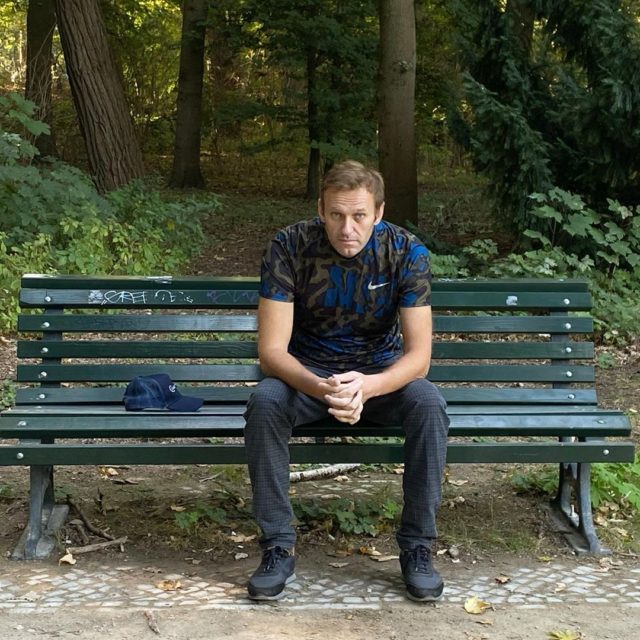Doctors in Germany released Russian opposition leader Alexei Navalny from hospital on Tuesday, following extensive treatment for poisoning. While growing evidence indicates Kremlin involvement in Navalny’s life-threatening illness, Berlin seems unlikely to punish Moscow for it.
German Chancellor Angela Merkel has characterized the attack as an “attempted murder,” and said a Russian nerve agent was “unequivocally” responsible. Russia’s leadership has denied involvement, but the Kremlin has a history of poisoning to punish its critics at home and abroad. Germany and other European governments originally made strong statements condemning the poisoning but failed to specify any actionable steps they would take in retaliation.
The poisoning of Navalny is just one example of Moscow’s malign behavior, not only domestically, but throughout Europe. And Germany has the tools to limit Russia’s destabilizing and anti-democratic actions by imposing costs on Moscow. Most notably, Chancellor Merkel could stop construction on Nord Stream 2, an almost complete natural gas pipeline that connects Russia to Germany – while being separate from other European countries and Ukraine, allowing Russia to stop supplies to the others while remaining tied to Germany. Blocking the pipeline, even at this late stage of its construction would limit German dependence on Russian energy, deprive Moscow of gas royalties, and publicly punish the Kremlin.
Sen. Tom Cotton told the JPC: This is one of the worst things a NATO ally can do to the others. (Currently) if Russia wants to exert influence through energy politics on countries, such as the Baltic nations or Poland or Ukraine, it has to also cut off gas to its main client, Germany. (Completion of Nord Stream II) would mean Russia could turn off the gas or take any other action against countries east of Germany in the dead of winter, while Germans sit comfortably in their warm living rooms, indifferent to the plight of Estonians, Poles, or Ukrainians.
While the State Department is currently leading a campaign against the pipeline, Germany appears unmoved by the American position. The long arm of U.S. sanctions has spooked some large insurance firms covering vessels working for the project.
Navalny became sick on a flight to Moscow in August, following a visit to the Siberian city of Tomsk to support local allies. Pilots diverted the plane to Omsk, where paramedics transported his unconscious body to a nearby hospital. Upon hearing of his poisoning online, two opposition loyalists rushed to Navalny’s hotel room, collecting items, including two water bottles they hoped could provide answers.
Navalny’s wife Yulia, begged doctors to send the opposition leader to Germany for treatment after his condition failed to improve. She held a news conference accusing the hospital of delaying such a transfer so that the toxins would pass from his body. She also wrote an open letter to Russian President Vladimir Putin before doctors cleared Navalny to be medivaced to Germany. As she accompanied her husband out of the country, Yulia brought with her the water bottles found in the hotel. Russian officials insisted that removing the items from the hotel room impedes any “legitimate investigation.” President Putin even claimed that the opposition leader may have poisoned himself.
Over the next 24 days, Navalny remained in intensive care in Berlin, gradually awakening from weeks in a coma. During that time, labs in Germany, France, and Sweden confirmed that the water bottles contained traces of Novichok, a Soviet-era nerve agent. Such a deadly toxin could only be created under tightly controlled conditions in a specialized laboratory, suggesting state-sponsorship of the poisoning.
Doctors believe that while Navalny can make a full recovery, “it remains too early to gauge the potential long-term effects of his severe poisoning.” Following his discharge from the hospital, the opposition figure posted a photo of himself outside on social media, thanking the medical professionals in charge of his case and explaining his long physical rehabilitation process. It remains unclear when or if he will return to Russia.
The political fallout for the Kremlin remains equally unclear.


